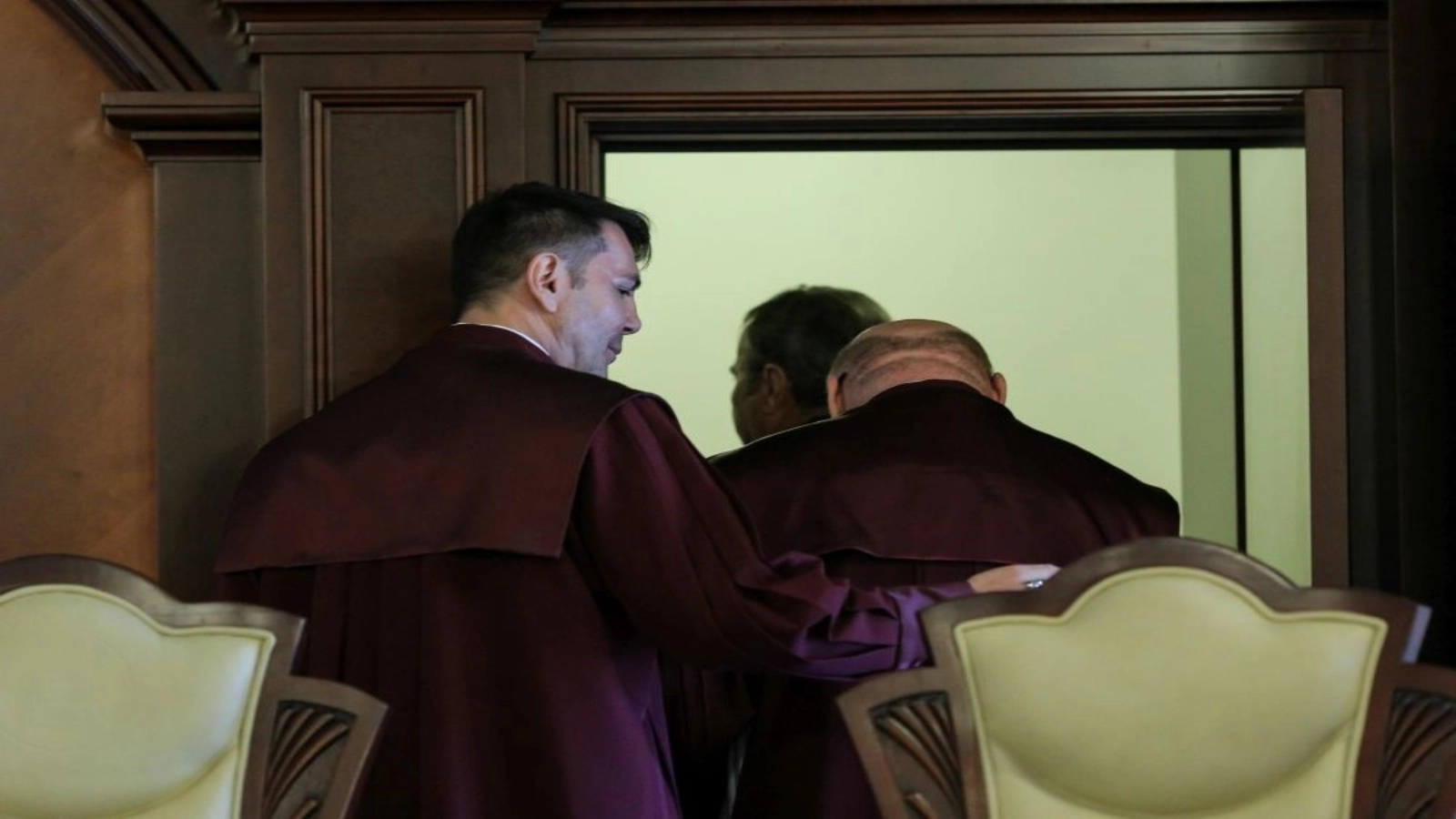The Constitutional Court of Romania (CCR) determined on Thursday that through certain articles of Law 55/2020 on specific measures for the prevention and combat of the effects of the COVID-19 pandemic, Parliament cumulates legislative and executive functions and confusion is created about the legal regime of the government decisions, informs a press release of the CCR sent to AGERPRES.
The Constitutional Court discussed the exception of unconstitutionality of the provisions of Art. 4 paragraph (3) and (4), Art. 65 letter s), s), Art. 66 letter a), b) and c) and Art. 67 paragraph (2) letter b) of Law 55/2020 on specific measures for the prevention and combat of the effects of the COVID-19 pandemic.
"Following deliberations, the Constitutional Court, by unanimous vote, upheld the exception of unconstitutionality and found that the provisions of Art. 4 para. (3) and (4), as well as of Art. 65 letter s), s), Art. 66 letters a), b) and c) regarding the references to Art. 65 letters s), s) and t) and of Art.67 paragraph (2) letter b) regarding the references to Art. 65 letters s), s) and t) of Law No.55/2020 regarding specific measures for the prevention and combat of the effects of the COVID-19 pandemic are unconstitutional," reads the release.
The Court found that the criticism brought by the Ombudsman was well-founded, retaining, in essence, the unconstitutionality of Article 4 (3) and (4) of Law No. 55/2020 in relation to the provisions of Article 1 (4), Article 21, Article 52, Article 108 and Article 126 (6) of the Constitution, since, through these legal texts, Parliament cumulates the legislative and executive functions, resulting in the violation of the principle of separation and balance of powers in the state, enshrined in Article 1 paragraph (4) of the Constitution.
Moreover, the constitutional judges show that "the legal regime of the government decisions is being distorted, as law enforcement acts, having as a result the violation of Art. 108 of the Constitution".
CCR also mentions that a "confusing" legal regime of government decisions is thus created, which could raise the issue of their exemption from judicial control, with the consequence of the violation of the provisions of Article 21, Article 52 and Article 26 of the Constitution, which enshrines free access to justice, the right of the person injured by a public authority and the guarantee of judicial control of the public authorities' administrative acts, by way of administrative litigation, except for those concerning the relations with Parliament, as well as of the military command acts.
The Constitutional Court also analyzed the unconstitutionality of Art. 65 letter s), s), Art. 66 letter a), b) and c) regarding the references to Art. 65 letter s), s) and t) and Art. 67 paragraph (2) letter b) regarding the references to Art. 65 letter s), s) and t) of Law No. 55/2020 in relation to the provisions of Art. 1 paragraph (5) of the Constitution, in the quality component of the law.
"Thus, as long as Art. 5 of Law No.55 / 2020 has 3 paragraphs, it cannot be determined which are the institutions and public authorities 'designated according to Art. 5 para. (4) letter g)', to which Art. 65 letter s) of the same law refers and neither the constructions, installations or arrangements, the moving / dismantling of some movable assets / means or for the controlled flooding of certain land plots, cultures, plantations or forests, 'established according to Article 5 para. (4) letter h) 'referred to in Art. 65 letter s) of the law, in order to establish the constitutive elements of the contraventions referred to in the mentioned legal texts," the magistrates specify.
According to the Court, this "inaccuracy" affects accordingly the provisions that refer to Art. 65 letters s) and s) of the law, respectively Art. 66 letters a) and b) and Art. 67 paragraph (2) letter b), which are also subject to criticism. Likewise, since there is no letter t) of Art. 65, the provisions of Art. 66 letter c) and of Art. 67 paragraph (2) letter b) that refer to the non-existent letter t) of Art. 65 are, practically, without object.






























Comentează